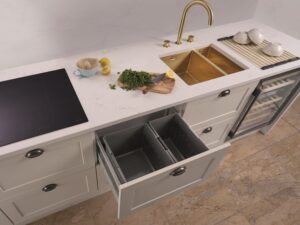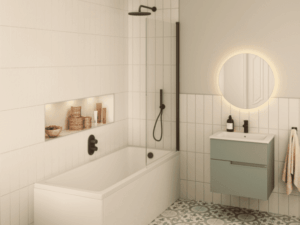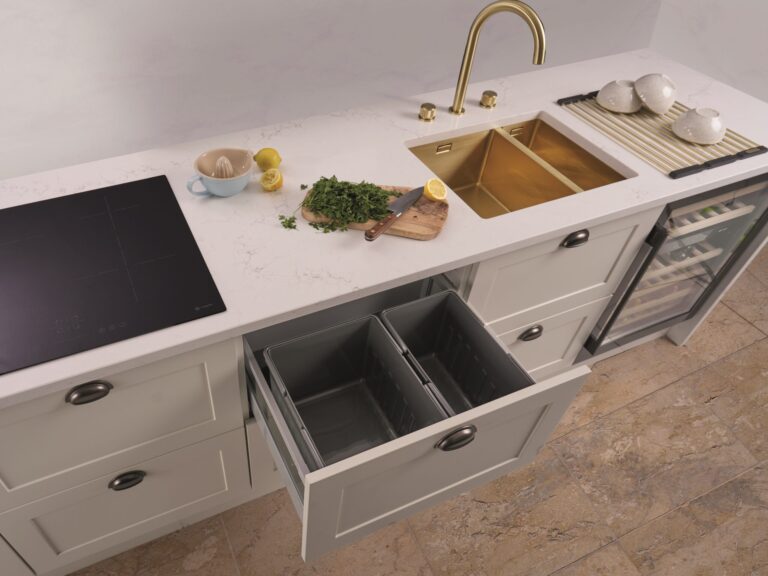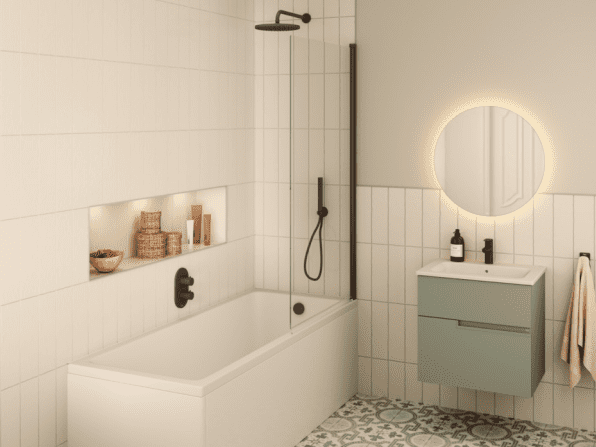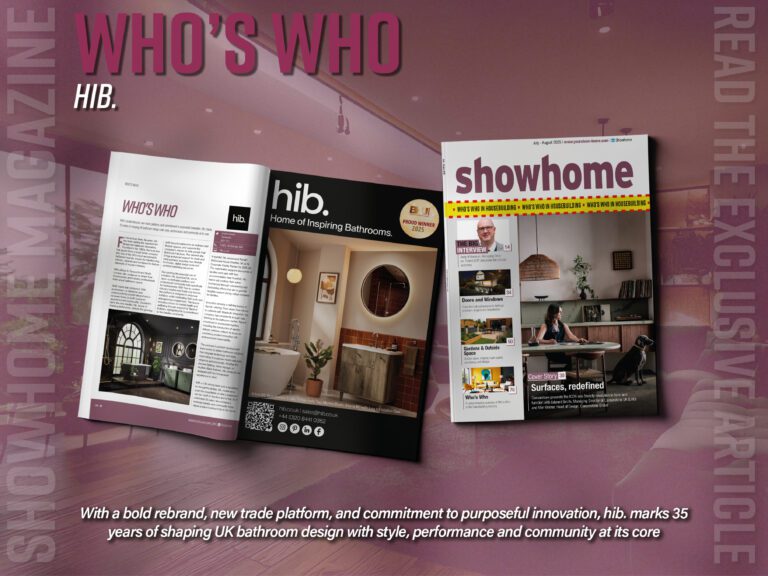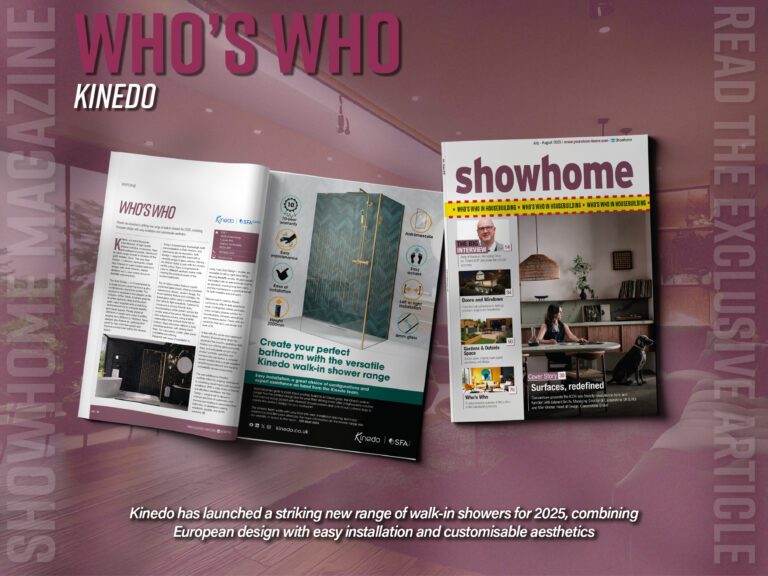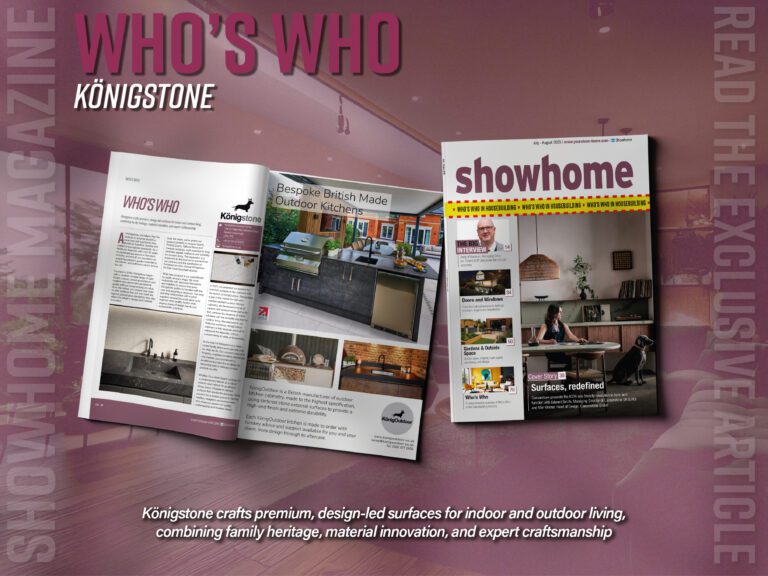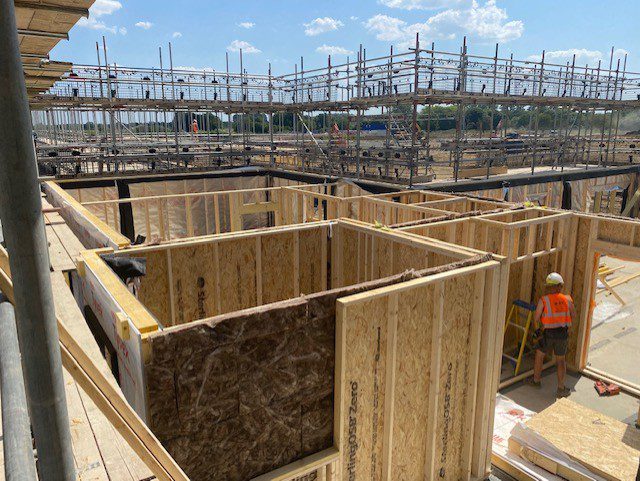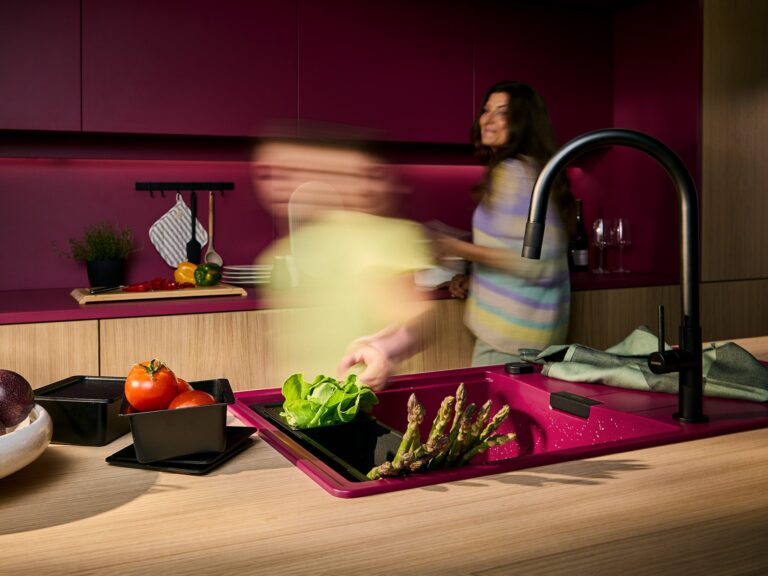Joseph Clarke, Editor of Showhome explores how surface materials shape build quality, design value and buyer experience
Among all interior surface choices in a new build home, kitchen worktops carry some of the most visible and practical importance. As open-plan layouts continue to dominate UK housing design, worktops are no longer isolated finishes—they are statement pieces, functional assets, and sales tools. For developers, selecting the right material requires a careful balance of cost, resilience, installation logistics, and visual appeal.
At the premium end of the specification chain, Athena has emerged as a leading supplier of bespoke solid surface and composite worktops. Working extensively with UK fabricators and developers, Athena’s offering goes beyond supply—encompassing templating, seamless jointing, integrated upstands, and shaped island units that meet both aesthetic and technical requirements.
Their solid surface products allow for the creation of fluid, joinless workspaces that perform exceptionally well in family kitchens, where hygiene and durability are key. Athena’s materials are non-porous, repairable, and thermally formable, making them suitable for curved features, waterfall edges and integrated sinks—design details that appeal to buyers while offering long-term durability. The brand also supports low minimum order runs, which makes them viable not only in executive homes but also in bespoke or high-specification developments where differentiation is a marketing priority.
Athena’s ability to provide integrated design consultation and factory-controlled fabrication reduces site fitting errors and helps streamline project timelines. For developers seeking to deliver kitchens that feel architecturally composed and commercially viable, Athena provides both technical reliability and high-end impact.
For developers specifying mid- to high-tier homes, engineered quartz remains a consistent favourite. Caesarstone offers a wide selection of quartz surfaces with natural veining, fine grain, and a polished or honed finish. Their materials are known for stain resistance, non-porosity, and uniform colour, making them suitable for developments where a consistent visual output across multiple plots is needed. Caesarstone also supports waterfall-end designs and is regularly used in kitchen islands and feature splashbacks.
Cosentino, best known for its Silestone and Dekton ranges, provides ultra-compact surfaces made with advanced sintering technologies. Dekton is particularly valued for its resistance to heat, scratching, and UV exposure—qualities that are becoming more relevant in homes where open kitchens extend to outdoor living areas. Cosentino also scores well on sustainability metrics, offering recycled content and carbon-neutral options in select lines.
For housebuilders delivering at volume or working within constrained budgets, laminate continues to offer design flexibility and ease of install. Wilsonart supplies compact laminate and postformed worktops that can mimic the look of stone or timber at a fraction of the cost. Their moisture resistance and abrasion durability make them well suited to busy kitchens in starter homes or apartments. Wilsonart’s worktops are available in a variety of edge profiles and surface textures, helping developers match style aspirations with programme constraints.
Stone Circle, a UK fabricator of natural and engineered stone, is also gaining traction among developers seeking locally fabricated quartz and granite. Their in-house CNC capacity enables custom cuts and rapid delivery to UK sites—an advantage for higher-spec schemes that still demand tight logistics.
Bathroom, Utility & Wet Area Surfaces
In bathrooms, utility rooms, and other wet zones, surface material performance becomes critical. Constant exposure to moisture, heat, and aggressive cleaning agents means materials must offer more than visual appeal—they must also resist swelling, mould growth, staining and thermal degradation. For developers, the challenge is to deliver hygienic, seamless installations that stand up to long-term use without driving up programme complexity.
In this space, Athena’s solid surface products offer a distinct technical and aesthetic advantage. Their seamless fabrication capability is particularly beneficial in bathrooms, where integrated basins, splashbacks, and vanity units reduce dirt traps and simplify cleaning. Solid surface materials can be joined invisibly, offering a monolithic appearance while maintaining access to plumbing and services.
Athena’s materials also withstand the humidity cycles and harsh cleaning protocols common in bathrooms, while providing a warm-to-touch, non-porous finish that resists mildew and bacterial buildup. Their offering supports custom shapes and sizes, allowing designers and developers to create vanities and washstands that respond directly to plot layout and end-user needs. This is especially valuable in compact bathrooms or under-stair cloakrooms, where standard units often fall short of spatial efficiency.
In utility areas, where durability often trumps design, Athena’s composite products also serve well—offering worktops and panels that are stain-resistant, thermally stable, and compatible with under-mounted sinks and heavy appliances.
For larger schemes or tenure types where cost control is a key driver, Wilsonart’s compact laminate panels provide a high-performance, low-maintenance solution. These products are particularly useful in utility rooms and bathrooms due to their water resistance and hard-wearing melamine layers. They can be specified in stone-effect or solid colour finishes and are suitable for both horizontal and vertical applications, including wall cladding and shelving…


